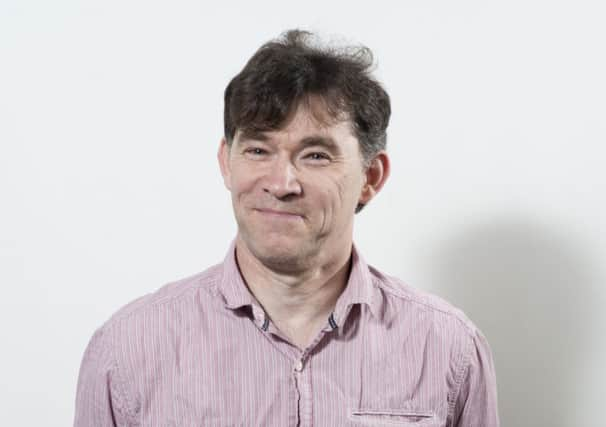In search of a self-help mantra to make us feel happier


DR STEVE Taylor likes doing nothing. In fact, he’s made a career out of it. Which is odd, considering he’s a senior lecturer at Leeds Beckett University, the author of six best-selling books, not to mention a married father-of-three.
His published works include Waking from Sleep, The Fall and Back to Sanity. The core message of all of them is that we all need to slow down, take a step back from the bright lights of modern life.
Advertisement
Hide AdAdvertisement
Hide AdHe argues that in doing so, we all have the ability to connect with something deeper, something more meaningful – a kind of spiritual essence – which, he argues, will ultimately make us happier.
But the 47-year-old didn’t come to this philosophical vantage point without a good deal of soul-searching. At one point in the mid 90s he was poised to become a journalist only for his life to take a different path.
“I was 29 and had recently moved back to the UK after some years abroad. I’d wanted to be a writer for a long time, but had never felt sure about what I was writing.
“I felt the impulse to write, but I thought I should be writing fiction, novels and short stories, but somehow it didn’t feel right, and none of the material I wrote was particularly good.
Advertisement
Hide AdAdvertisement
Hide Ad“But I’d always been interested in psychology and spirituality and had been collecting ideas for a book on that theme and in 1996 I finally sat down to write it.”
Something clicked and he wrote the entire book in four months. “This became my book Waking From Sleep. It wasn’t published straight away – I ended up publishing three other books first. But when it was eventually published, it became my best-selling book, he says.
Around this time he started doing meditation which had a big impact on him, too, having suffered from depression in the past.
Now, he’s keen to pass on his mantra to as many people as possible.
Advertisement
Hide AdAdvertisement
Hide Ad“I think people spend too much time in the virtual world and not enough time in the real world.
“Our spare time is constantly consumed by these things,” he says.
“Things like TV and mobile phones, the act of consuming goods, are pleasant distractions but then people worry about earning more money so they can buy more stuff they quite often don’t really need.”
He believes there’s a lot of pressure on people to constantly be using or consuming goods.
Advertisement
Hide AdAdvertisement
Hide Ad“What I’m saying is you do not have to go through all that in order to be happy, you can find it inside yourself but in order to do that you have to slow down.
“It’s a question of allowing yourself to be less active, to give yourself some space to be quiet. If your mind is constantly chattering – constantly distracted – you will become stressed.”
So, is he advocating literally doing nothing? As ever, there lies a deeper meaning in his message.
“It’s not about doing nothing altogether, it’s about doing things quietly. It’s going for a walk in a park or the countryside, or going for a swim, it’s just something which gives yourself a break.”
Advertisement
Hide AdAdvertisement
Hide AdIn 2007 he returned to university to study a part-time degree in consciousness studies and transpersonal psychology, which he found fascinating.
“Although I’d written books on psychology and knew quite a bit about some areas of it, I’d never studied it academically,” he says.
This led to him starting a PhD which in turn led to getting a job as a senior lecturer in psychology.
“Being mindful is about focusing on the moment, on the experience you are having right now, whether that’s going for a run or eating a meal, you can do it with anything. It’s about doing things quietly to stop your mind chattering all the time.”